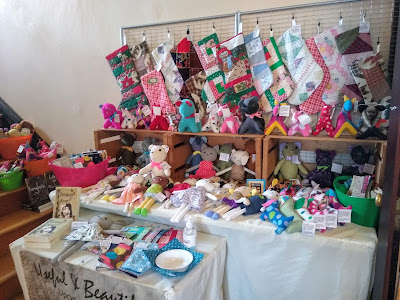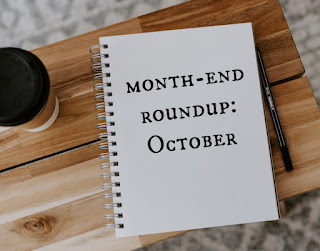For Thanksgiving, I'd like to offer my take on Thanksgiving, 1932 in the combined households of Ava Kimber and her friend and neighbor, Trudy. Times are hard, but they can still find reason to be grateful, and it's the one day of the year where no one worries about leftovers.
**************
Trudy
and I combine forces for Thanksgiving. Karl has not returned, and for a few
days, my smiling friend is replaced by a sad-eyed woman who looks ten years
older. She pulls herself together because Fritz and Hetty, her remaining grandchildren,
need her.
In
addition to the moral support, a joint dinner means more food for all. One of Daniel’s friends managed to shoot a couple of turkeys in the woods
north of town, and he brought one home in exchange for helping to fix a roof.
The house is perfumed with its rich scent.
Carrying the platter across the back
porch to Trudy’s kitchen, I think about how this was always Mama’s favorite
holiday. She
was big on gratitude, giving loud thanks for blessings other people might not
have recognized as such. I want to be more like her, but I can’t help but see that we have a turkey only because Daniel
gave up his day off, and a meal meant for family must be shared with others for
there to be enough.
I
hear Mama’s voice, as I often do these days. Family is whoever you choose to bring under your roof.
Trudy
is family, in that sense, as was Dora, her daughter-in-law.
There
are thirteen of us around the table, which is two tables put together and dragged
into the front room: Trudy and Hermann, Fritz and Hetty, Daniel and me and our
five, and two of Trudy’s boarders who were invited at the
last minute, soft-spoken men whose contributions are a pie and a packet of tea.
“Bless us, O Lord, and these, Thy
gifts which we are about to receive from Thy bounty. Through Christ, Our Lord,
amen.”
The
room falls silent but for “please pass
the potatoes” and “may I have more beans?” For once no one worries about holding
back for the next day.
One
of the men says something to Hermann, and he repeats it to Trudy. She turns to
me. “Hans says at such a meal, his family
would go around the table and each person says what they are grateful for. Do
you think this is good?”
“It sounds like something Mama would
have liked.”
Her
eyes crinkle. “Then we shall do it for Lillie.”
She explains the idea to everyone and points to the man who suggested it.
“Hans, is your idea, so you go first.”
Hans
blushes and stammers, but manages—with Trudy’s
translation—to say, “I am thankful to be surrounded by kind people when I am
missing my family.”
His
friend, whose name I didn’t catch, echoes him, word for word.
“I’m thankful for turkey!” Toby
waves his fork.
“And pie!” George, not to be
outdone, points toward the kitchen.
“I’m grateful for my family,” Dandy
says, ducking his head.
Trudy
looks around. “I am thankful for my family that is
here, and my family that is not here.”
Fritz,
his chin quivering, gulps and says, “I
am thankful Mama didn’t live to see us separated.” His grandmother says
something sharp in German and the boy shakes his head.
“I’m grateful for Granny,” Pearl
says, smoothing things over. “I’m grateful we had her as long as we did.”
“So am I, honey.” I put my hand over
hers. “And I’m grateful for everyone at this table today.”
“Thelma?” Daniel asks. “What about
you?”
She
looks up through tousled curls. “I’ll
be grateful not to be the baby anymore.”
There
is no night shift on Thanksgiving. Daniel and I huddle together under the
quilts, listening to the murmur of the kids’
conversation on the other side of the wall. It quiets down soon enough; their
bellies are too full for them to stay awake for long.
“You never said what you were
thankful for.” I roll on my left side, the only position in which I am
comfortable.
He
curls around me and nuzzles my neck. “Like
you have to ask,” he says. “I’m thankful for you, and our family. I’m the
luckiest man in the goddamn world.”





.jpg)



.png)

.jpg)